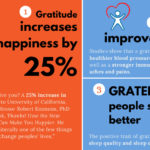
We’ve all been vulnerable at one point or another—perhaps when we asked someone out on a date, confessed our love for the first time, or revealed a part of ourselves we dislike most to someone. And, of course, this vulnerability doesn’t just happen when it comes to matters of love! We feel vulnerable giving a talk, asking for raises, and going on job interviews. Feeling vulnerable can be scary! Surrendering our defenses exposes us to people’s potential judgment, rejection, criticism, and even poor treatment. Yet the more open and honest we are with someone we feel safe with, the more satisfying our relationships will be.
What Is Vulnerability?
In her book, Daring Greatly: How the Courage to Be Vulnerable Transforms the Way We Live, Love, Parent, and Lead, research professor and author Brené Brown defines vulnerability as “uncertainty, risk, and emotional exposure.” Dr. Brown explains that vulnerability is not a weakness but a strength that allows us to be authentic, grow, and connect with others. What an empowering shift in perspective! The anxiety we feel when we’re about to take an emotional risk becomes a force for bravery rather than a cause to cower away. So, if being vulnerable is a strength, how do we cultivate it? We must first become aware of how we avoid feeling vulnerable.
1. Gaining Awareness
Mystic poet Rumi once said, “Your task is not to seek for love, but merely to seek and find all the barriers within yourself that you have built against it.” Unknowingly we block love through false beliefs like, “I’m not lovable,” “I don’t deserve love,” or “Everyone leaves me.” These beliefs often originate in childhood. They become so much a part of who we are that we don’t recognize how they block love from entering or staying in our lives. You can uncover these blocks by looking at your relationship behaviors. Are you always looking to please your partner? Do you attract the wrong partners for you? If so, you may feel unlovable. Do you have trouble letting in a romantic partner? Then you may feel like you don’t deserve love. If you believe that everyone leaves you, you may inadvertently sabotage relationships.
Recognizing unhealthy relationship patterns can alert you to the presence of false beliefs. With this knowledge, you can take action. You can turn disempowering beliefs into affirmations like, “I am lovable” or “I am worthy of love.” Repeating these positive thoughts helps fade the negative voice. You may also want to seek the help of a therapist to work through relationship blocks.
2. Asking for What You Want
Although it can be difficult, asking for what we want cultivates vulnerability, according to Tamsen Firestone, author of Daring to Love: Move Beyond Fear of Intimacy, Embrace Vulnerability and Create Lasting Connection. She writes, “Asking for what you want is difficult for many people because feelings of shame often accompany wanting or needing something from another person. Shame is a painful, primitive emotion that originates in early childhood from incidents when basic needs were not fulfilled.” Firestone explains that these incidents cause children to feel ashamed of their desire for affection, love, and understanding. Consequently, they hide any signs of wanting for fear of humiliation and shame from feeling unloved or being seen as unlovable. They carry these fears into adulthood, resisting asking a partner for what they want.
Putting yourself on the line is a hard thing to do, but it’s an emotional victory. As Firestone says, you not only know who you are, which is essential for guiding your life, but when your partner declines your request, you are building your tolerance for disappointment. Additionally, if your partner says no to your request, you can now make an empowered choice to either leave the relationship or accept and live with the response.
3. Being Yourself
Exposing an imperfection you have to a partner can feel risky. How will she feel if I tell her I have an addiction? What will he think when I disclose my religious beliefs? What will happen when I tell her about my family? As you fear the potential fallout of your honesty, vulnerability arises. But no matter how the conversation unfolds, you can be satisfied that you were truthful about who you are. If you can’t be true to who you are, flaws and all, how can you have an honest, intimate relationship?
Contorting and adapting yourself to what you think others want to believe about you crushes your self-esteem. Ideally, you want people to accept you for who you are―your heartbreaks, successes, mistakes, past traumas, strengths, and weaknesses. Intimacy happens when you can trust someone to embrace all who you are with kindness. If you keep parts of yourself hidden, it can cause stress and lower your well-being. Even though it can be anxiety-provoking, revealing your true self honors and validates you. Moreover, when you share your humanity, you give others a safe space to share theirs.
Conclusion
No matter what kind of relationship we’re in, we all feel vulnerable at times. But it’s important to remember that vulnerability is a strength, not a weakness. By being aware of our vulnerabilities, communicating our needs and wants, and being authentic, we can create more thriving relationships.






Leave a Reply